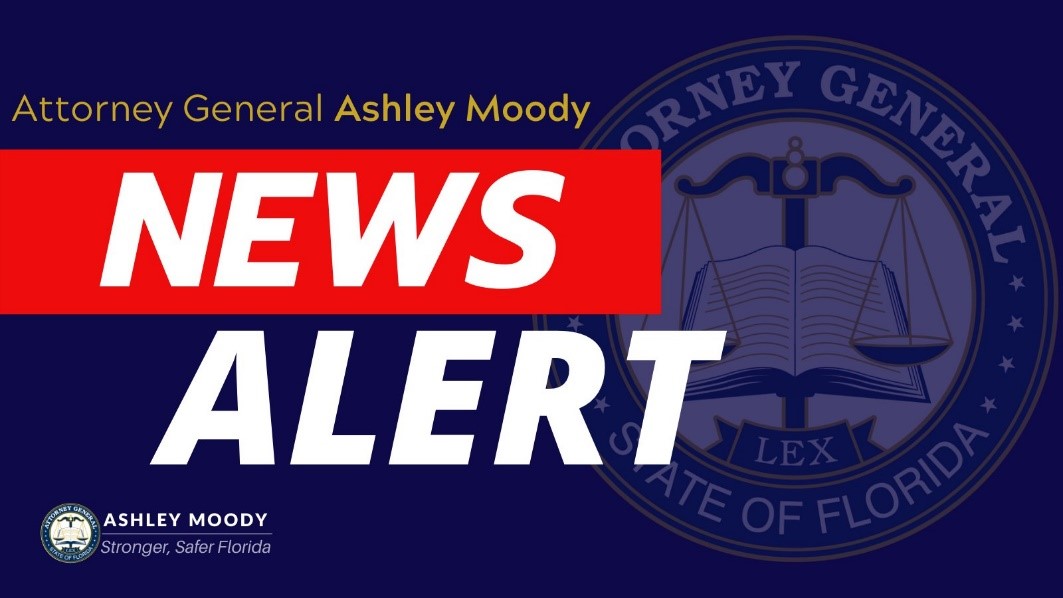Attorney General Moody Secures $700 Million From Google over Play Store Misconduct

TALLAHASSEE, Fla.—Attorney General Ashley Moody, along with a coalition of 52 other attorneys general, secured $700 million from Google over the company’s anticompetitive conduct. Attorney General Moody and the coalition’s lawsuit alleged that Google unlawfully monopolized the market for the distribution of Android apps, monopolized the in-app payment market and tied Google Play Billing to the use of Google Play. Of the $700 million, it is estimated that affected Floridians will receive tens of millions of dollars.
Attorney General Ashley Moody said, “We’ve obtained substantial monetary relief for Floridians as part of a $700 million recovery against Google over its anticompetitive business practices. These practices included monopolizing the Android app distribution and in-app payment processing markets. This is a tremendous victory for Florida consumers as well as for our free, fair and competitive marketplace.”
Google will pay $630 million in restitution to consumers harmed by the company’s anticompetitive practices who made purchases on the Google Play Store between August 2016 and September 2023. Google will pay the states an additional $70 million to resolve each state’s sovereign claims. Those eligible for restitution do not have to submit a claim. Affected consumers will receive automatic payments through PayPal or Venmo, unless they elect to receive a check or ACH transfer. Additional details about the fund distribution process will be forthcoming. The action also requires Google to make its business practices more procompetitive in a number of important ways. The agreement and notice plan are subject to court approval.
Attorney General Moody and the coalition took legal action against Google in 2021 alleging that the tech company unlawfully monopolized the market Android app distribution and in-app payment processing. Specifically, the coalition claimed that Google signed anticompetitive contracts to prevent other app stores from being preloaded on Android devices, bought off key app developers who might have launched rival app stores, and created technological barriers to deter consumers from directly downloading apps to their devices.
Google is now required to reform its business practices in the following ways:
- Give all developers the ability to allow users to pay through in-app billing systems other than Google Play Billing for at least five years;
- Allow developers to offer cheaper prices for apps and in-app products for consumers who use alternative, non-Google billing systems for at least five years;
- Permit developers to steer consumers toward alternative, non-Google billing systems by advertising cheaper prices within the apps themselves for at least five years;
- Not enter contracts that require the Google Play Store to the be the exclusive, pre-loaded app store on a device or home screen for at least five years;
- Allow the installation of third-party apps on Android phones from outside the Google Play Store for at least seven years;
- Revise and reduce the warnings that appear on an Android device if a user attempts to download a third-party app from outside the Google Play Store for at least five years;
- Maintain Android system support for third-party app stores, including allowing automatic updates, for four years;
- Not require developers to launch app catalogs on the Google Play Store at the same time as they launch on other app stores for at least four years; and
- Submit compliance reports to an independent monitor who will ensure that Google is not continuing its anticompetitive conduct for at least five years.
For much of this case, the attorneys general litigated alongside Epic Games and Match, two major app developers. Match announced a separate settlement earlier this year, while Epic Games took its case to trial. A jury unanimously found that Google’s anticompetitive conduct violated the federal antitrust laws early last week.
In addition to Attorney General Moody, the coalition consists of the attorneys general of the other 49 states, as well as the attorneys general of the District of Columbia, Puerto Rico and the Virgin Islands.
To view a copy of the agreement, click here.
# # #

